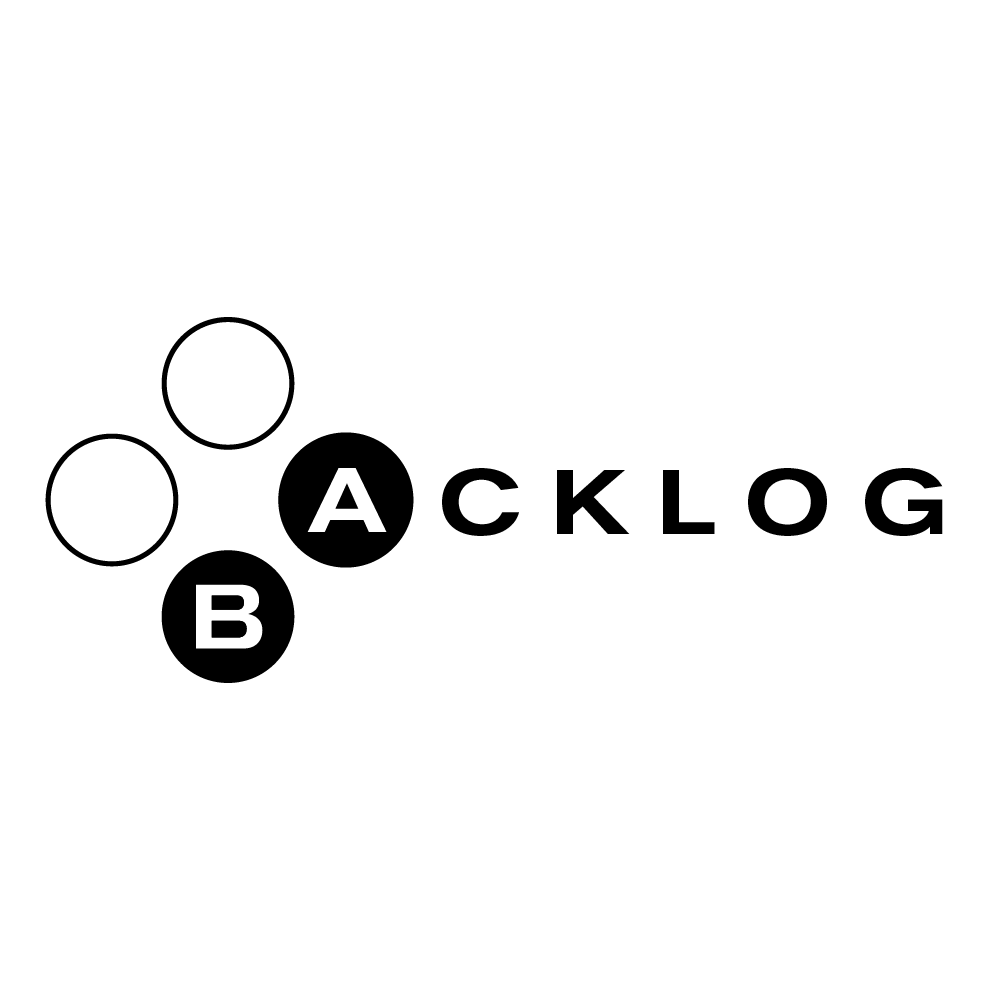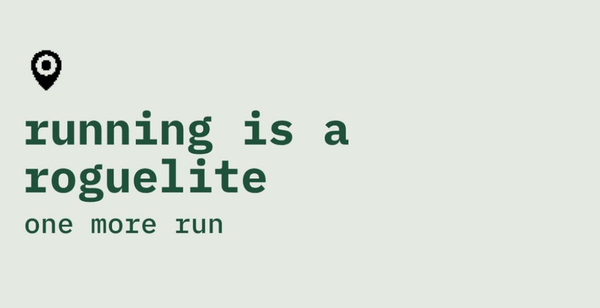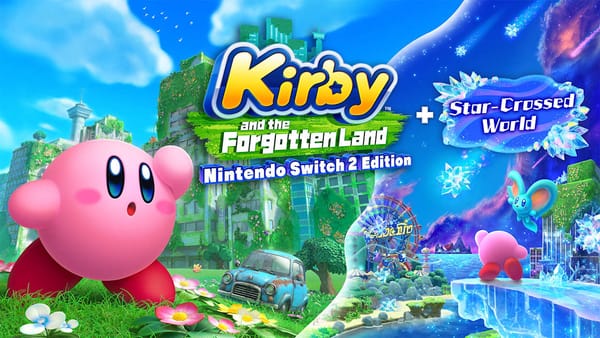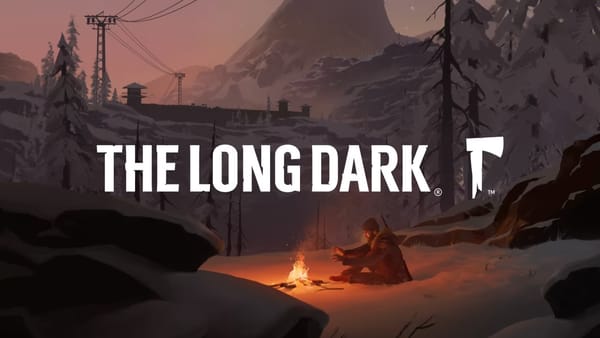The source of overwhelm: Fantasy Life i and Promise Mascot Agency
What differentiates one checklist from another
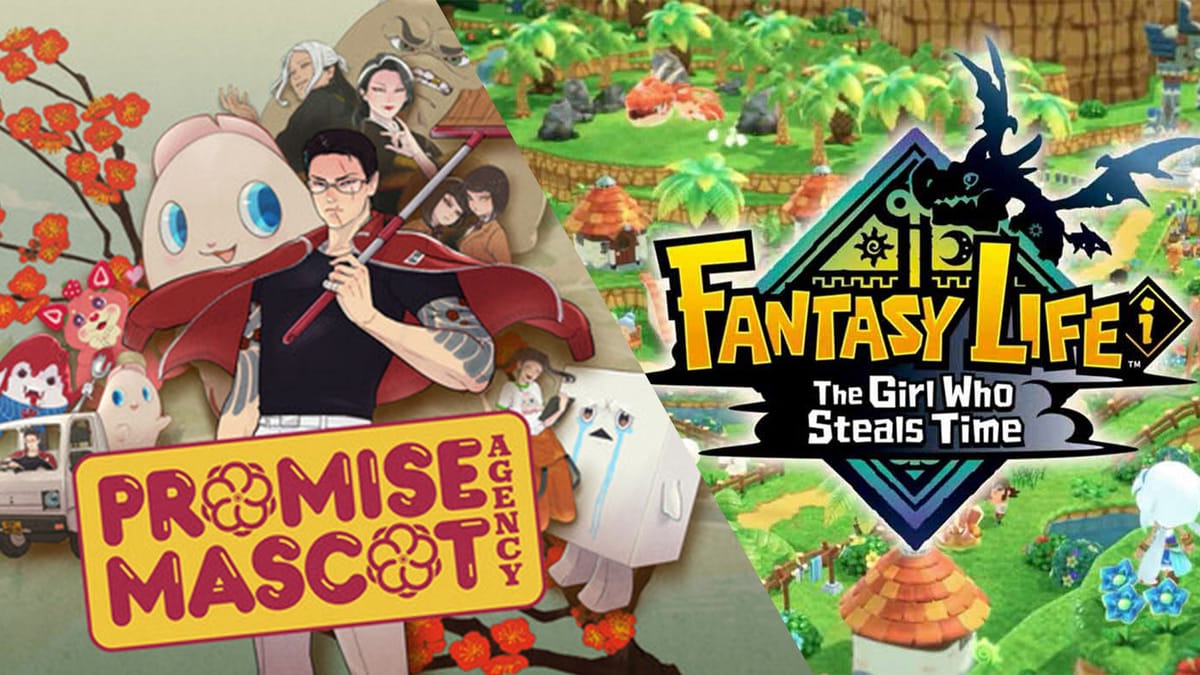
Games love a checklist. Whether it’s a menu full of quests, a set of optional challenges, or simply a list of collectibles, there’s a decent chance that the last game you played had some sort of checklist incorporated into its design. They’re a sensible way of taking a complex task and breaking it down into its constituent parts, which is why I’m an avid checklister in my daily life, dividing each day into morning, day, and night and segmenting my tasks accordingly. Whether you’re trying to get through your day or through a game, checklists can be a powerful tool against overwhelm: the feeling that there is simply too much to do.
However, I recently played two games that made me pause to consider the limits of the checklist and its efficacy against the feeling of overwhelm—or, if not that, then how the approach to a checklist-style game can dramatically impact its emotional effect on the player. So, to cut to the chase, here’s where I think Fantasy Life i and Promise Mascot Agency diverge in their approach to a unified checklist and the sensation of overwhelm. But first, let me make the case that these two games belong in conversation in the first place.
I picked up Fantasy Life i: The Girl Who Steals Time on a whim after seeing people start gushing about it on Bluesky. I didn’t play the original on the 3DS, so I wasn’t coming in with any nostalgia, although I have enjoyed plenty of Level-5 games over the years, starting way back on PS2 with Dark Cloud. The general pitch I was seeing on social media was that this game combined Animal Crossing, Diablo, and Breath of the Wild, which was just microtargeted enough to make me spend 60 bucks on a whim.
I do think Fantasy Life i shares a bit with each of those experiences, but ultimately what the game boils down to is a long checklist of tasks, presented via an in-game menu, which you can pursue at your leisure while progressing the main story. Checklist games like this are like a buffet, letting you graze on whatever suits your fancy at any given time, and Fantasy Life i is like several buffets in one. If your idea of a good time is a game that has many, many irons in the fire, then you should grab this game pronto, as you’ll be able to cook, mine, woodwork, dungeon crawl, paint, and farm to your heart’s multifaceted content. There are so many different quest lines and subtasks that you will not lack for things to do, even if the story isn’t anything to write home about (though admirably scripted on a line-by-line level).
Promise Mascot Agency, meanwhile, is all about story. In Promise, you play a yakuza sent to a cursed town inhabited by living mascots that are down on their luck in order to revitalize a mascot agency and the town it inhabits. It is a small open world game, as in it is an open world but the physical space is fairly contained. It’s a genre I hope becomes more prevalent, as it scratches that itch of exploration without making me feel like I need to quit my day job just to finish it. It is in some ways akin to a game like Tchia or A Short Hike, except, you know, for the dark, weird, and sometimes pervy tone and the existence of living mascots that simply want to work for a living and chase their dreams. I have nothing but praise for the script of Promise Mascot Agency, which I think is one of the few examples of an absurdist game that understands that beneath the weird must be a real, beating heart, in this case a story of redemption and urban (or I guess rural) renewal. That and your own personal rehabilitation, which is tied up in money.
When you start the game, you have nothing except a truck to your name. You arrive in town and are put in charge of transforming a former love hotel into a thriving mascot agency, recruiting the living mascots that loll about town and putting them to work at events, negotiating their pay scale and making money for the agency in the process. The tasks start small: visit X area to recruit Y mascot and send them to Z task. Eventually, you’re managing a small cadre of these offbeat cuties (think: less Kumamon and more flayed eel with an exposed heart), gaining passive income from subcontractors and merchandise, and investing in the town’s infrastructure to increase the quality of jobs you can send your mascots on. It’s a snowball rolling down a hill kind of thing, a tiny ball that grows larger and larger as it picks up speed.
In both games, each task, no matter how varied or seemingly minute, contributes to the game’s overall sense of growth and expansion. In Fantasy Life i, time spent cutting trees rewards you with wood that can be turned into furniture via the carpentry minigame, which can then be placed on your island, which might reward you with some blue flowers that can be used to transform an item you found in the open world section into a character who can join you for dungeon crawling. In Promise Mascot Agency, time spent chatting with a mascot about their ambitions and life plans increases their satisfaction, which in turn makes them more likely to succeed on jobs, which then increases the amount of money coming into your coffers, which you can then reinvest in the town to create even better opportunities for said mascot. Games thrive on feedback loops, as they create a sense that everything you’re doing is worthwhile, and in this way, both Fantasy Life i and Promise Mascot Agency succeed. Everything you do in both games feeds back into the reason for doing them in the first place.
Where I think they differ, and where I think Fantasy Life i lost me, is in the focus (or lack thereof) of the rewards they provide.
Money makes the world go round. Cliché, but true, especially these days in the good ol’ US of A. It’s also true in Promise Mascot Agency. Everything, and I mean everything, revolves around getting more money in Promise. Every collectible, every upgrade, and every system feeds back into helping you to make more money each in-game day in order to keep up with increasing financial demands. Cleaning a shrine? Good on its face, but it also provides a greater chance to make more money. Investing in rural infrastructure? Good policy (take note, literally any functioning political party), sure, but yeah, ultimately it just means more money coming into your pockets. I suppose one could make the case that you spend the game collecting many other items—hero cards to support your mascots in their endeavors, merchandise from a gacha machine minigame, upgrades for your truck including a set of wings—but each and everything serves to maximize the overall goal of making exactly one currency: yen.
Fantasy Life i, by contrast, rewards you with an entire economy of equally important currencies and items. Gold allows you to purchase some things, but then other times you need blue flowers. The game has 14 “lives” to pursue, the equivalent of jobs, though one of those lives is the one you start with (“Brand New”) and three of them are combat-focused lives that you’re only meant to choose one of and stick to. I’ll save you the napkin math: that leaves you with 11 lives, each not only with their own set of quests and objectives, but materials and skill trees and equipment to procure, produce, and improve. Sure, you ostensibly could get through the game with only a couple of those lives—a fishing magician or a woodworking mercenary—but it isn’t really how the game wants you to play. All the systems, and all their rewards, feed into each other in a grand tapestry that resembles nothing so much as a fully functioning economy, where one output feeds another input so that its output can feed a different input. For a certain kind of player, this is heaven. For me, it was the source of overwhelm.
More than anything, I admire games with focus these days. Usually, this comes in the form of a game that is shorter than your contemporary blockbuster. A 400-page novel might take me 10 or so hours to read, which, again for my napkin math friends out there, might be considered a budget indie game length by the standards of 2025. Hell, Clair Obscur has been praised, among other things, for its relative brevity, but we’re definitely grading games on a curve here, because that sucker reportedly takes 30+ hours to see through. This is the deadest horse, I know, but as someone who loves games in his mid-thirties, I want shorter games, not longer, and I’ll leave it at that.
But a shortened runtime isn’t the only way for a game to feel focused, and I think these two titles, placed together, help us to see that in effect. I played both for roughly the same amount of time: Fantasy Life for 15 or so, Promise Mascot Agency for 12-ish. And each game, as I’ve argued, escalates in a similar fashion: small tasks beget larger goals beget more tasks beget even larger goals. But my emotional experience during those hours couldn’t have been more different. Early hours with Fantasy Life were pleasant and calming. Taking time to chop a tree before delving further into a dungeon was meditative and relaxing. I knew that I would be rewarded for pretty much anything I chose to do. But as time went on, I found myself less engaged with the world and more engaged in the menus, trying to maximize what my current goal was and what “lives” were underleveled and thus holding me back. Seeing a Level 45 ore location was less cause for celebration and more cause for concern, as I was nowhere near where I needed to be to get a gem out of that. I went back to the menu to see where I needed to go to get better at mining and teleported there. In this way, the checklists stopped functioning as a means by which to prod me into engagement and more as the primary interface via which I interacted with the game. The further I progressed into Fantasy Life i, the more the menu became the star of the show.
Now, it isn’t that you don’t spend more time in the menu in Promise Mascot Agency as you progress. You do. But because everything was so focused on a few simple objectives—make money to improve the agency and town—from the beginning to the end of my time with the game, my energy was directed out toward the game world. The checklist never becomes the star. The world remains your primary playground.
It might seem funny to say that rewarding the player, predominantly, with one currency achieves this effect, but I think it’s true. It’s like when my checklist itself gets too complicated, with items having sub-items that need to be checked off before the larger item. Suddenly, a tool meant to overcome overwhelm becomes itself a source of overwhelm. A task broken into a thousand pieces becomes a thousand-piece task. Likewise with Fantasy Life i: Being rewarded with complexity by a system meant to reduce it creates friction and fights the original intention. Promise Mascot Agency, in keeping its rewards simple, retains the original purpose of the checklist: simplification and engagement.
Turning away from these games and back toward my life, I find myself reconfiguring my own approach to checklisting. I’ve removed my tendency to create subtasks, focusing instead on larger goals. If I achieve them in one sitting, great. If I don’t, also great. The task will wait for me as a reminder. The goal is to remain engaged in the world, not the checklist. In short, I’m trying, these days, to be more Promise than Fantasy.
